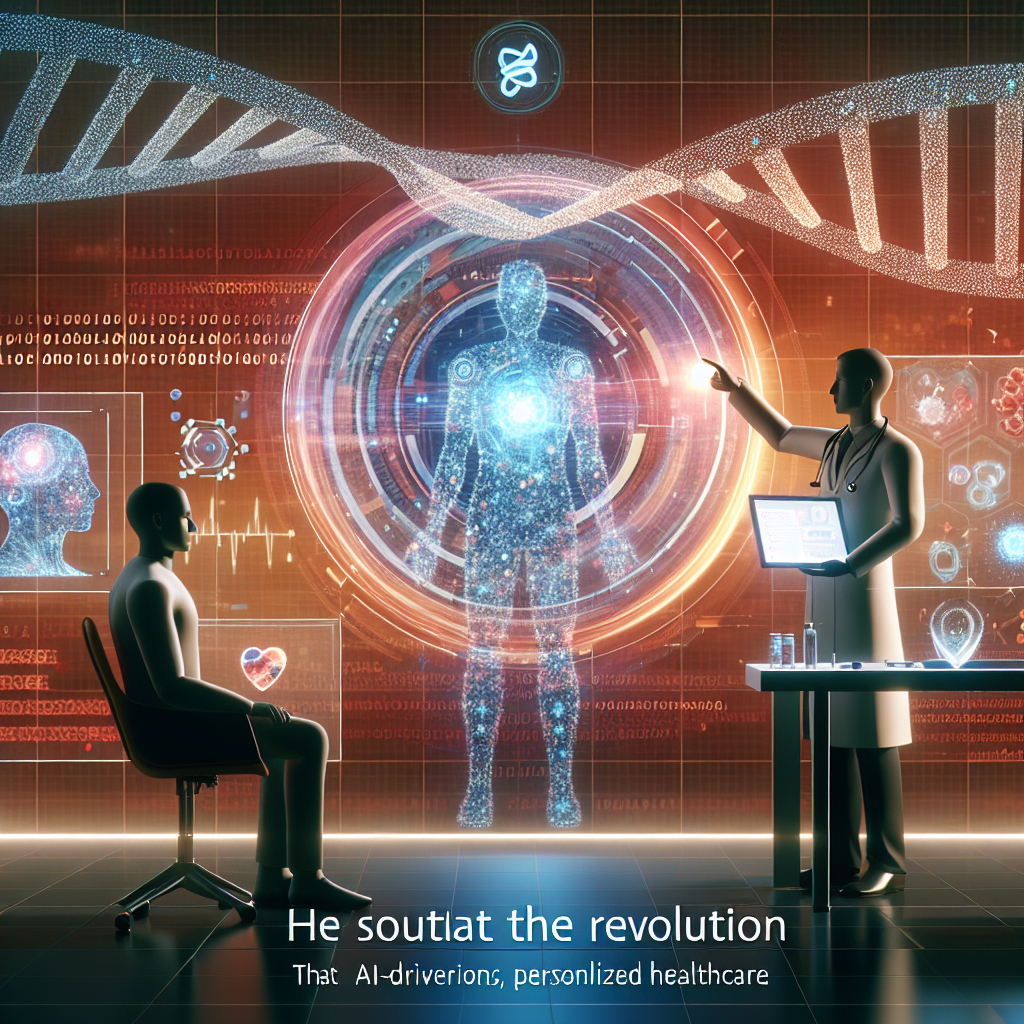In recent years, artificial intelligence (AI) has made significant advancements in various industries, including healthcare. One of the most exciting developments in this field is the use of AI-driven solutions to revolutionize personalized healthcare. These solutions are changing the way healthcare providers diagnose, treat, and manage diseases, leading to better outcomes for patients. In this article, we will explore how AI-driven solutions are transforming personalized healthcare and the benefits they offer.
AI-driven solutions in personalized healthcare encompass a wide range of technologies, including machine learning, natural language processing, and deep learning. These technologies enable healthcare providers to analyze large amounts of data quickly and accurately, leading to more personalized and effective treatment plans for patients. For example, AI can analyze a patient’s medical history, genetic makeup, and lifestyle factors to identify patterns and trends that may indicate a particular disease or condition. This information can then be used to tailor a treatment plan that is specific to the individual patient, leading to better outcomes.
One of the key benefits of AI-driven solutions in personalized healthcare is the ability to predict and prevent diseases before they occur. By analyzing data from a variety of sources, including electronic health records, wearable devices, and genetic tests, AI can identify individuals who are at high risk for certain conditions and recommend interventions to reduce that risk. For example, AI can analyze a person’s genetic data to identify genetic markers associated with a particular disease, such as cancer or heart disease. This information can then be used to recommend lifestyle changes, medications, or other interventions to prevent the disease from developing.
AI-driven solutions are also revolutionizing the way diseases are diagnosed and treated. For example, AI can analyze medical images, such as X-rays, MRIs, and CT scans, to detect subtle abnormalities that may be missed by human radiologists. This can lead to earlier and more accurate diagnoses, allowing for more timely treatment and better outcomes for patients. In addition, AI can analyze large amounts of clinical data to identify patterns and trends that may indicate the effectiveness of a particular treatment or medication. This information can be used to tailor treatment plans to individual patients, leading to more personalized and effective care.
Another benefit of AI-driven solutions in personalized healthcare is the ability to improve patient engagement and adherence to treatment plans. AI-powered chatbots and virtual assistants can provide patients with personalized information and support, helping them to better understand their condition and treatment options. These tools can also remind patients to take their medications, attend appointments, and follow other aspects of their treatment plan. By improving patient engagement and adherence, AI-driven solutions can lead to better outcomes and lower healthcare costs.
In addition to improving patient care, AI-driven solutions in personalized healthcare can also benefit healthcare providers and organizations. For example, AI can streamline administrative tasks, such as scheduling appointments, billing, and coding, allowing healthcare providers to focus more on patient care. AI can also help healthcare organizations analyze data to identify opportunities for improvement, such as reducing readmissions or improving patient satisfaction. By leveraging AI-driven solutions, healthcare providers and organizations can improve efficiency, reduce costs, and deliver better care to patients.
Despite the many benefits of AI-driven solutions in personalized healthcare, there are also challenges and concerns that need to be addressed. For example, there are concerns about data privacy and security, as AI technologies rely on vast amounts of sensitive patient data. Healthcare providers and organizations must ensure that patient data is protected and used in a responsible and ethical manner. In addition, there are concerns about the potential for bias in AI algorithms, as they may reflect the biases of the data they are trained on. Healthcare providers and organizations must be vigilant in monitoring and mitigating bias in AI-driven solutions to ensure that they are fair and equitable for all patients.
In conclusion, AI-driven solutions are revolutionizing personalized healthcare by enabling healthcare providers to analyze large amounts of data quickly and accurately, leading to more personalized and effective treatment plans for patients. These solutions can predict and prevent diseases, improve diagnosis and treatment, and enhance patient engagement and adherence. By leveraging AI technologies, healthcare providers and organizations can improve efficiency, reduce costs, and deliver better care to patients. While there are challenges and concerns that need to be addressed, the potential benefits of AI-driven solutions in personalized healthcare are vast and promising.
FAQs:
Q: How does AI predict and prevent diseases?
A: AI can analyze data from various sources, such as electronic health records, genetic tests, and wearable devices, to identify individuals who are at high risk for certain diseases. This information can be used to recommend interventions to reduce that risk, such as lifestyle changes or medications.
Q: Can AI improve patient engagement and adherence?
A: Yes, AI-powered chatbots and virtual assistants can provide patients with personalized information and support, helping them to better understand their condition and treatment options. These tools can also remind patients to take their medications, attend appointments, and follow other aspects of their treatment plan.
Q: What are the concerns about AI-driven solutions in personalized healthcare?
A: There are concerns about data privacy and security, as AI technologies rely on vast amounts of sensitive patient data. There are also concerns about bias in AI algorithms, as they may reflect the biases of the data they are trained on. Healthcare providers and organizations must be vigilant in addressing these concerns to ensure that AI-driven solutions are fair and equitable for all patients.

